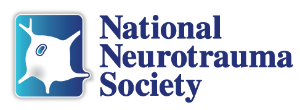Main Menu
Description & Objectives PL07
PL07: BIG DATA APPROACH TO NEUROTRAUMA







Chair: Matthew McAuliffe, PhD
PL07.01 - FITBIR’s Role in Big Data
Patrick Bellgowan, PhD - NIH/NINDS
PL07.02 - Using Preclinical CDEs and Data Sharing in FITBIR for Injury Model Comparisons
Douglas H. Smith, MD - University of Pennsylvania
PL07.03 - What is ENIGMA? Discoveries from 30,000 Brain Scans and Genomes Worldwide
Paul Thompson, PhD - USC School of Medicine
PL07.04 - Using Big Data to Identify Key Outcome Predictors
Session Description
Required data sharing has become the standard practice in federally funded clinical TBI research and has great potential in the preclinical domain. The accumulation of large datasets will require significant changes both in analytic approach and in the sociology of the neurotrauma community. This symposium aims to provide insight into NIH initiatives aimed at advancing data science innovation and to demonstrate the power of meta-analytic approaches and team science. Toward this aim, we will describe the Federal Interagency Traumatic Brain Injury Research (FITBIR) repository that was created to enhance TBI data sharing with the goal of accelerating discovery and maximizing limited research funds. The recent inclusion of preclinical data into FITBIR will allow a multitude of investigators to test hypotheses using data from multiple sources combined using common data elements. Success of datasharing within the neurotrauma community has become evident through publications that have harnessed the power of big data to uncover translationally-relevant predictors of long-term outcome across both TBI and SCI animal models. Because big data approaches require the combination of datasets across multiple centers, often considered a significant weakness, several large NIH-funded Big Data to Knowledge (BD2K) projects including ENIGMA have been funded to provide sophisticated meta-analytic methods and tools to overcome this perceived weakness. The ENIGMA platform is a resource for large-scale community-wide collaboration of multimodal data. Other disease fields have leveraged this resource and published big data dependent high-impact findings. Adoption of these methods by the neurotrauma field may help to accelerate development of effective treatments.
Learning Objectives
At the conclusion of this session, attendees will be able to:
- Understand the NIH perspective on integrating Data Science and biomedicine and the role it played in the formation of the Federal Interagency Traumatic Brain Injury Research (FITBIR) repository.
- Identify data sharing opportunities and requirements of federal-funding agencies for TBI research along with the current status of data availability in FITBIR.
- Understand the utility and success of developing common data elements (CDEs) for preclinical TBI research.
- Learn the path to enhancing preclinical CDE development and plans for implementing a preclinical data sharing strategy for Federally-funded projects.
- Describe concrete examples of how combining large numbers of preclinical neurotrauma datasets from multiple models and injury types can answer questions that cannot be answered without data sharing.
- Describe NIH"s BD2K mission of developing freely available Big Data analytic platforms and their utility
- Understand the BD2K ENIGMA platform"s successes in other disease areas and the path for bringing the TBI research community into the BD2K mission.
PL07: BIG DATA APPROACH TO NEUROTRAUMA







Chair: Matthew McAuliffe, PhD
PL07.01 - FITBIR’s Role in Big Data
Patrick Bellgowan, PhD - NIH/NINDS
PL07.02 - Using Preclinical CDEs and Data Sharing in FITBIR for Injury Model Comparisons
Douglas H. Smith, MD - University of Pennsylvania
PL07.03 - What is ENIGMA? Discoveries from 30,000 Brain Scans and Genomes Worldwide
Paul Thompson, PhD - USC School of Medicine
PL07.04 - Using Big Data to Identify Key Outcome Predictors
